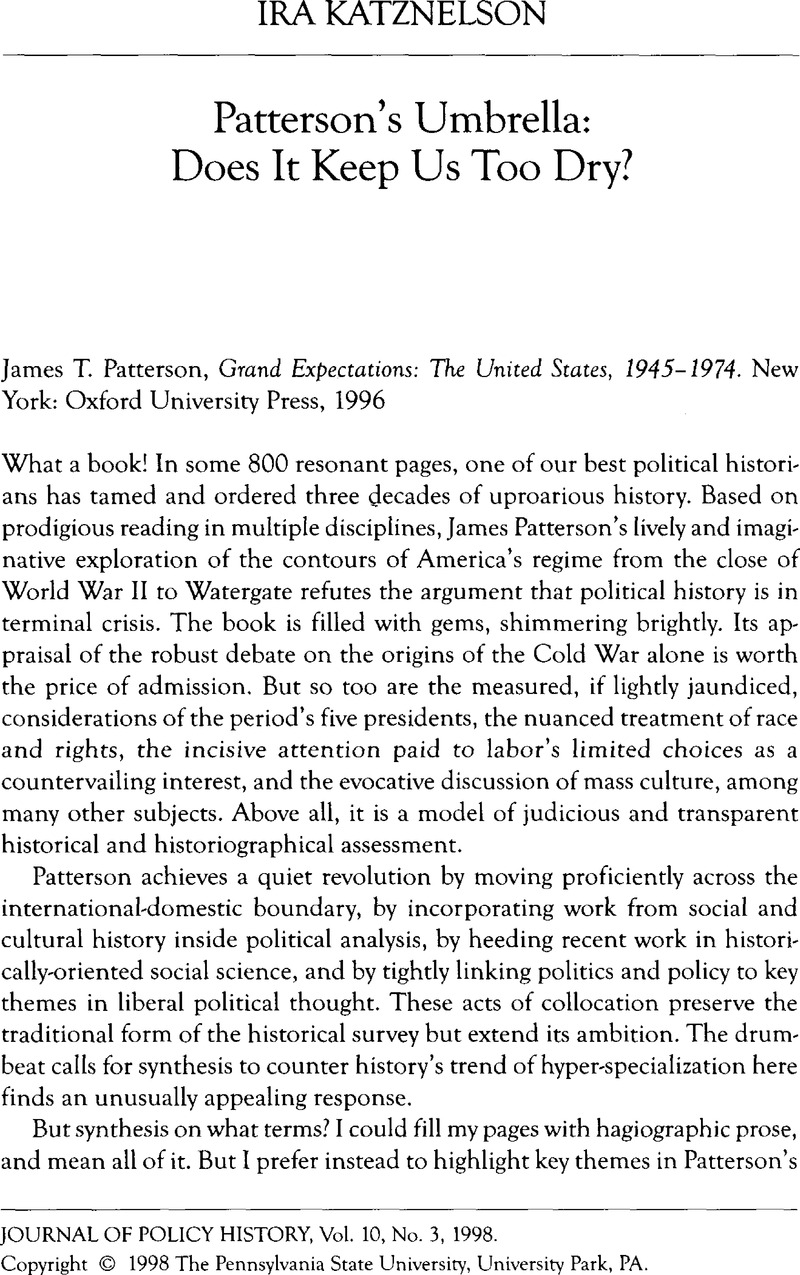Article contents
Patterson's Umbrella: Does It Keep Us Too Dry?
Review products
Published online by Cambridge University Press: 14 October 2011
Abstract

- Type
- Forum
- Information
- Copyright
- Copyright © The Pennsylvania State University, University Park, PA. 1998
References
Notes
1. Jon Elster, “Optimism and Pessimism in the Discussion of the Standard of Living During the Industrial Revolution in Britain,”unpublished manuscript, 1978; revised version in Elster, Jon, Logic and Society: Contradictions and Possible Worlds (New York, 1978)Google Scholar.
2. This, famously, is the much-contested argument made by Hartz, Louis, The Liberal Tradition in America: An Interpretation of Political Thought Since the Revolution (New York, 1955)Google Scholar. For critical assessments, see my “Working-Class Formation and American Exceptionalism, Yet Again,” in Halpern, Rick and Morris, Jonathan, eds., American Exceptionalism? U.S. Woiking-Class Formation in an International Context (New York, 1997)Google Scholar; and Smith, Rogers M., “Beyond Tocqueville, Myrdal, and Hartz: The Multiple Traditions in America,” American Political Science Review 87 (September 1993)Google Scholar.
3. Marshall, T. H., “Citizenship and Social Class, ” in Marshall, T. H., Class, Citizenship, and Social Development (Westport, Conn., 1963)Google Scholar.
4. Dworkin, Ronald, “Liberalism, ” in Hampshire, Stuart, ed., Public and Private Morality (Cambridge, 1978)Google Scholar.
5. Sherry, Michael S., In the Shadow of War: The United States Since the 1930's (New Haven, Conn., 1995)Google Scholar.
6. Katznelson, Ira, Geiger, Kim, and Kryder, Daniel, “Limiting Liberalism: The Southern Veto in Congress, 1933–1950, ” Political Science Quarterly 108 (Summer 1993)CrossRefGoogle Scholar.
7. Nettl, J. P., “The State as a Conceptual Variable, ”World Politics 20 (July 1968)CrossRefGoogle Scholar.
8. Burnham, Walter Dean, “Pattern Recognition and ‘Doing’ Political History: Art, Science, or Bootless Enterprise?” in Dodd, Lawrence C. and Jillson, Calvin, The Dynamics of American Politics: Approaches and Interpretations (Boulder, Colo., 1993), 66–671Google Scholar. For an earlier discussion, see, Burnham, Walter Dean, “Periodization Schemes and ‘Party Systems’: The System of 1896 as a Case in Point, ”Social Science History 10 (Fall 1976)Google Scholar.
- 1
- Cited by


